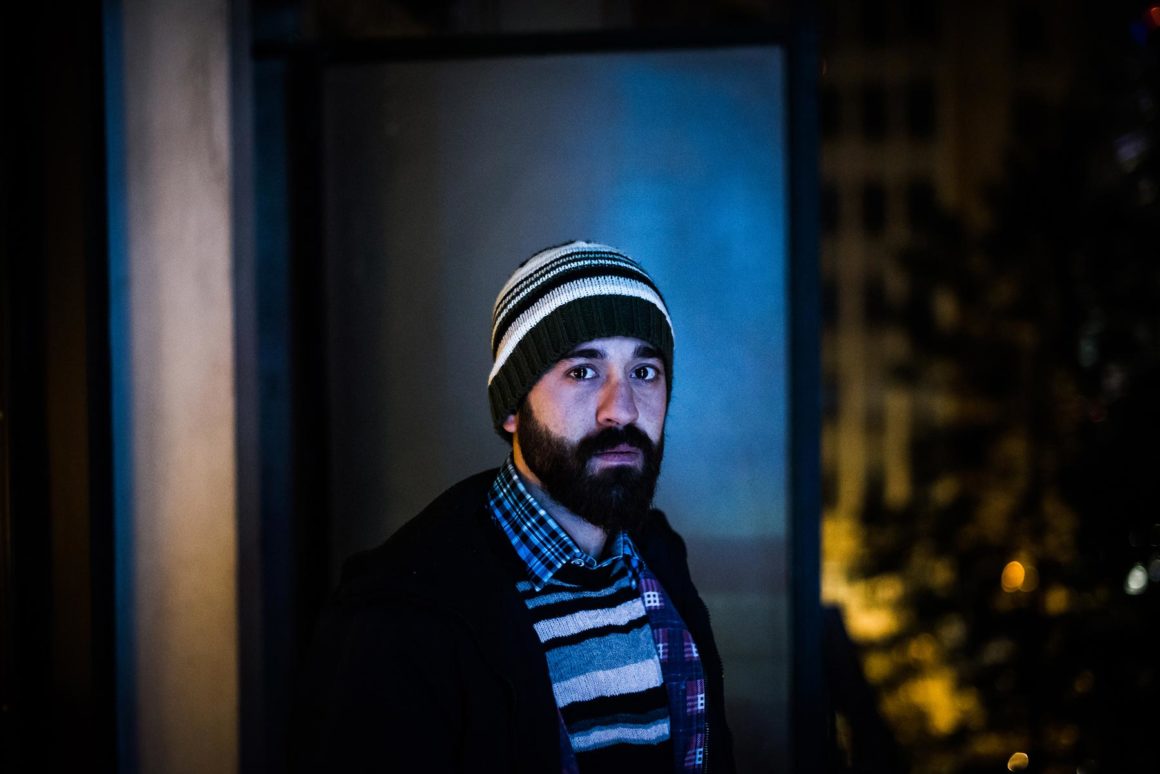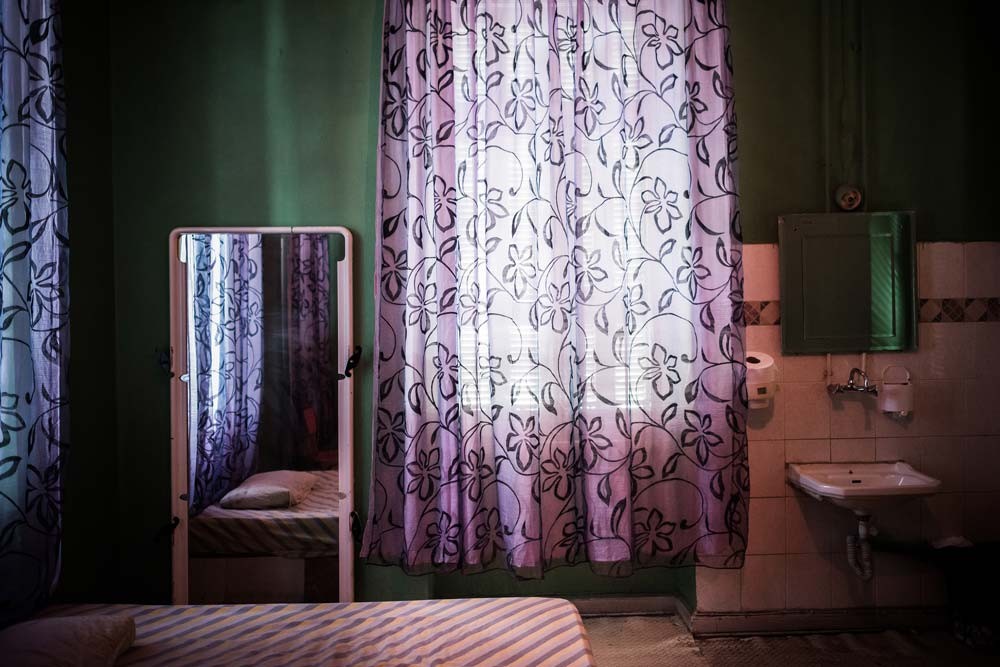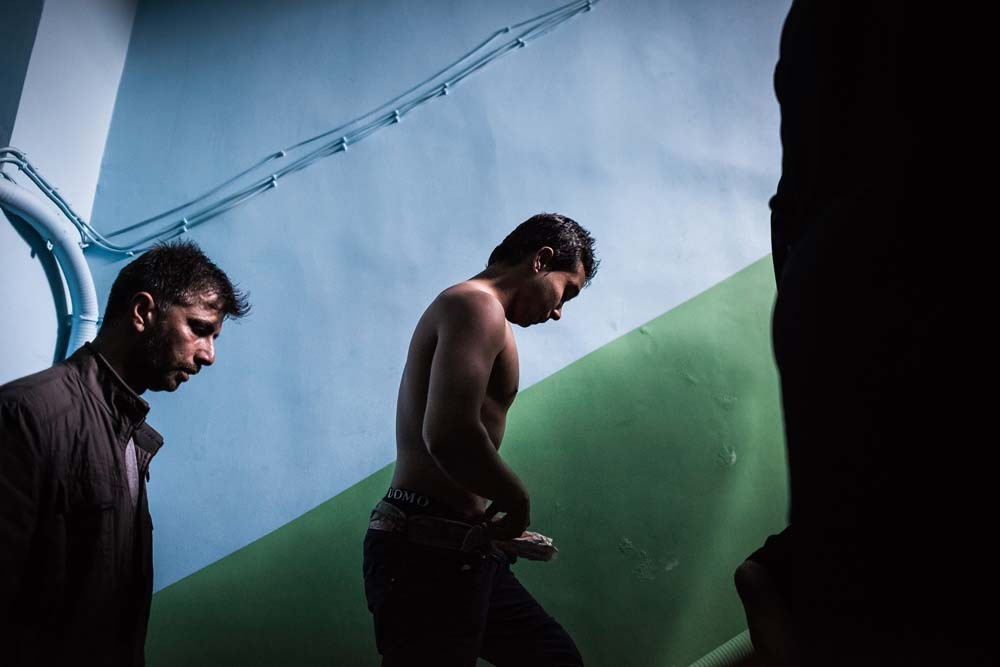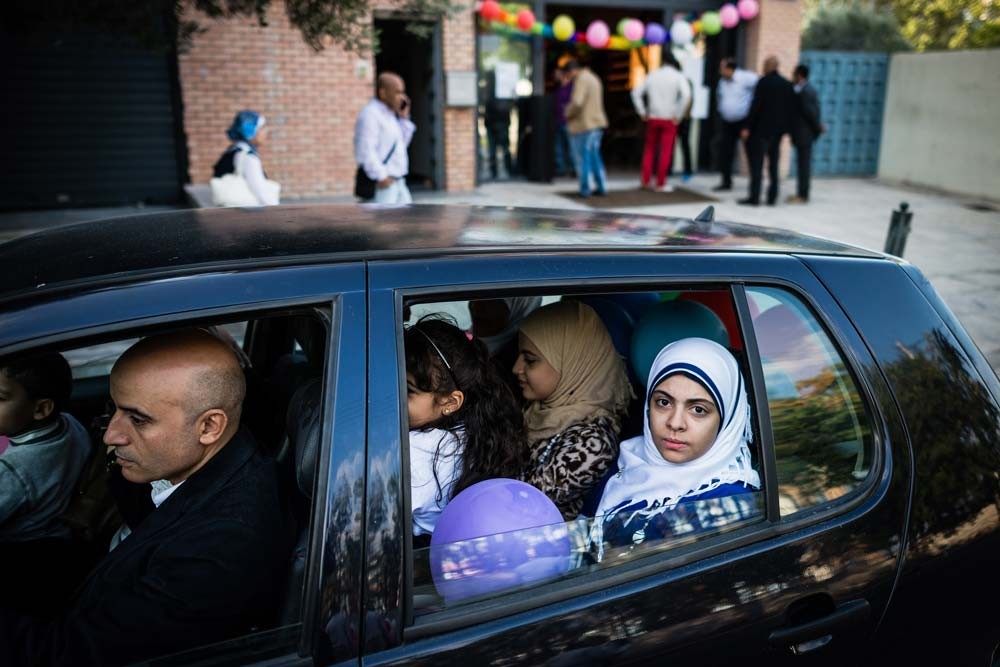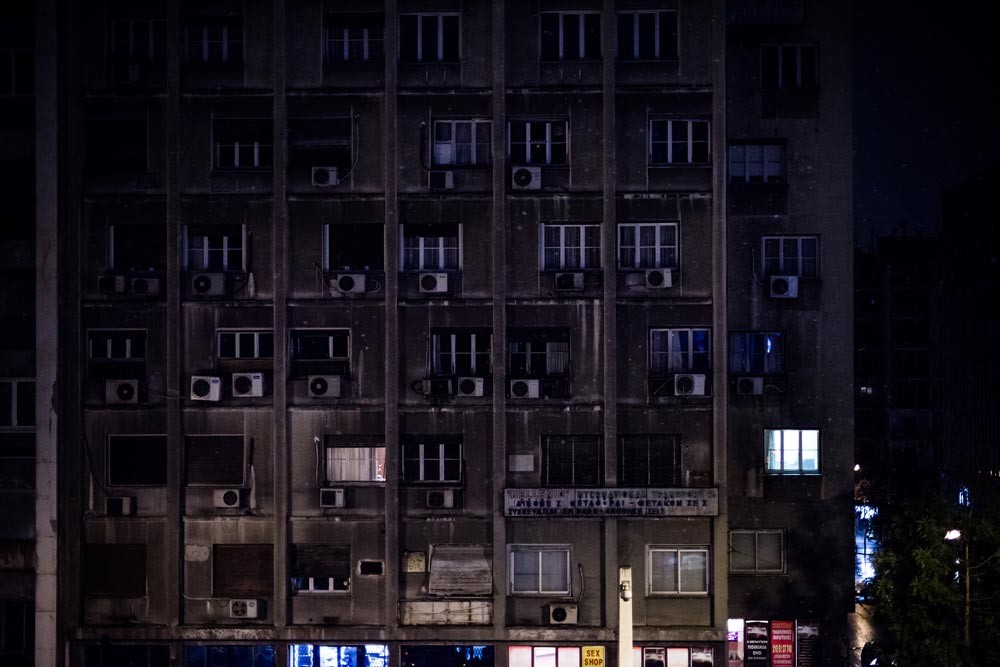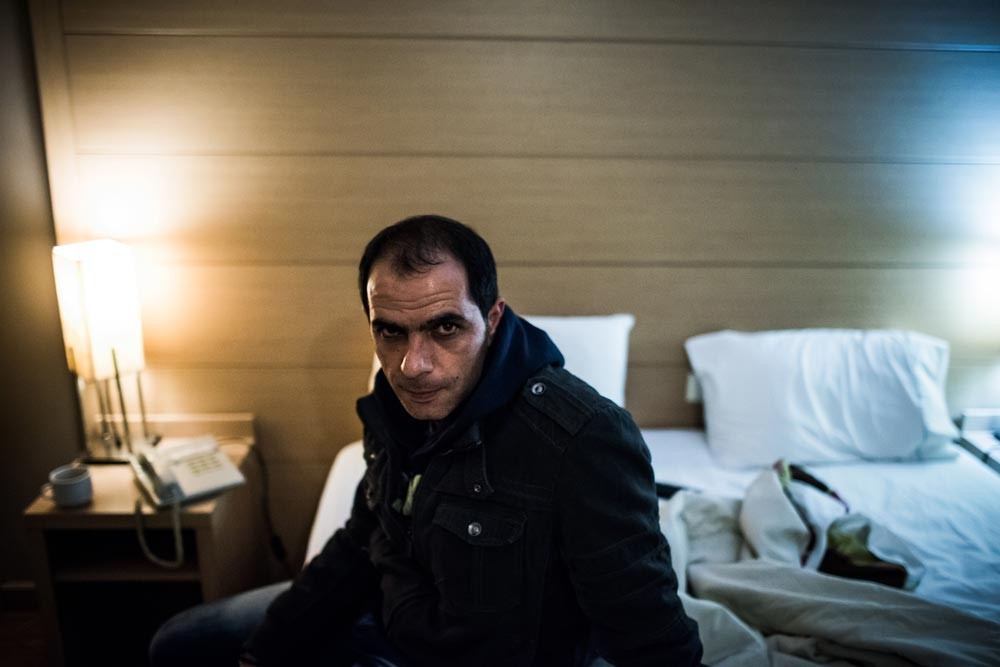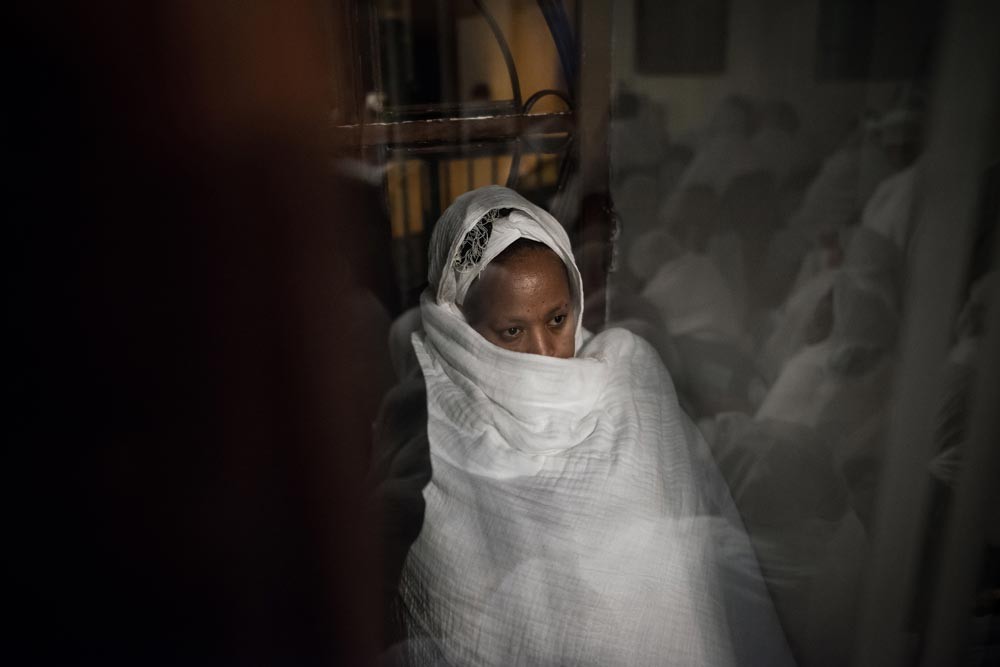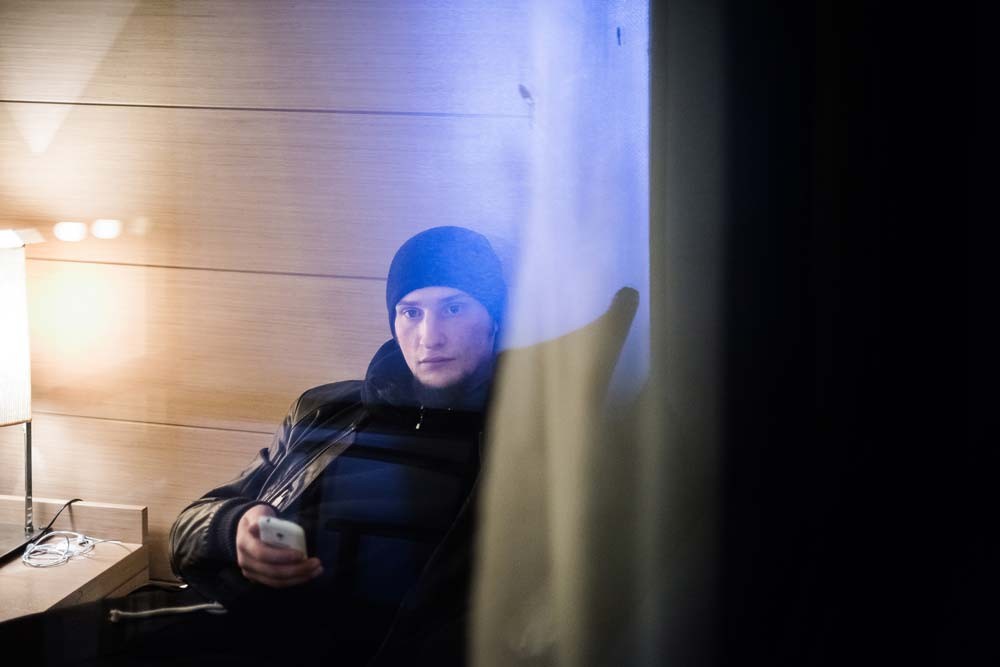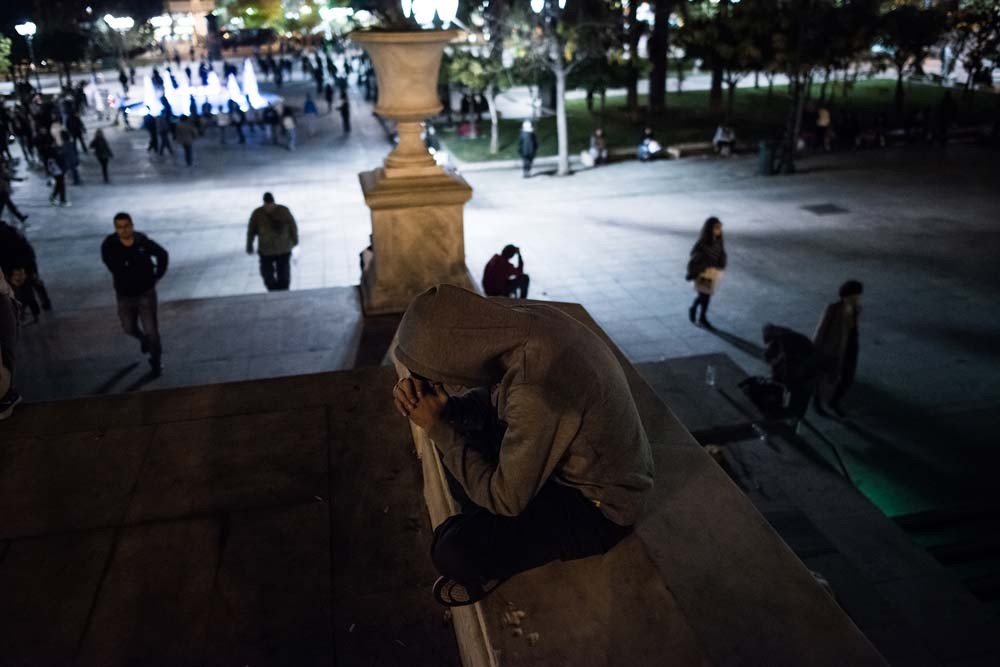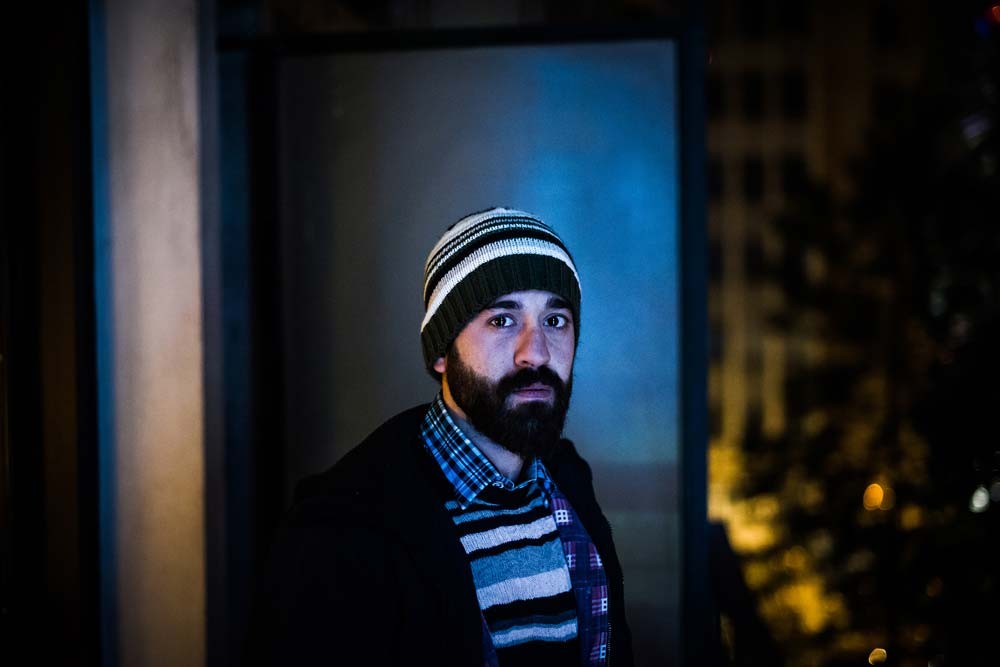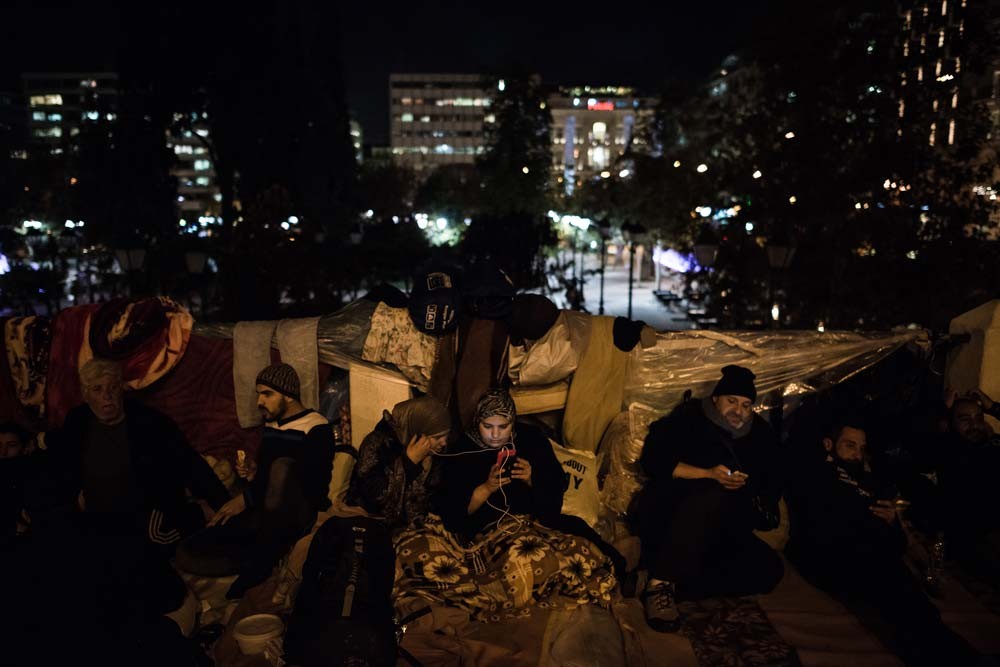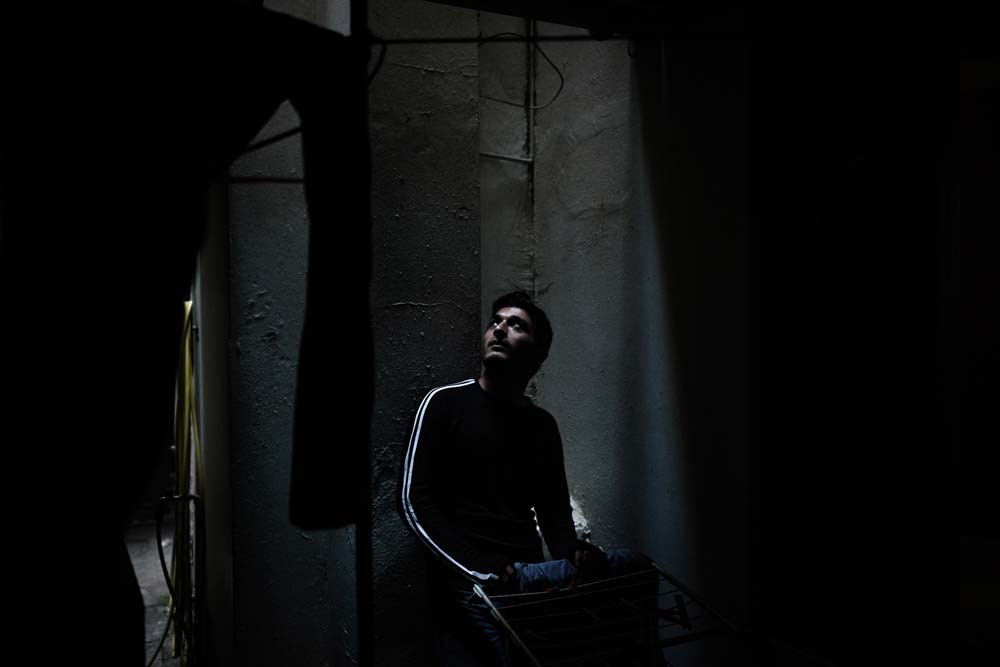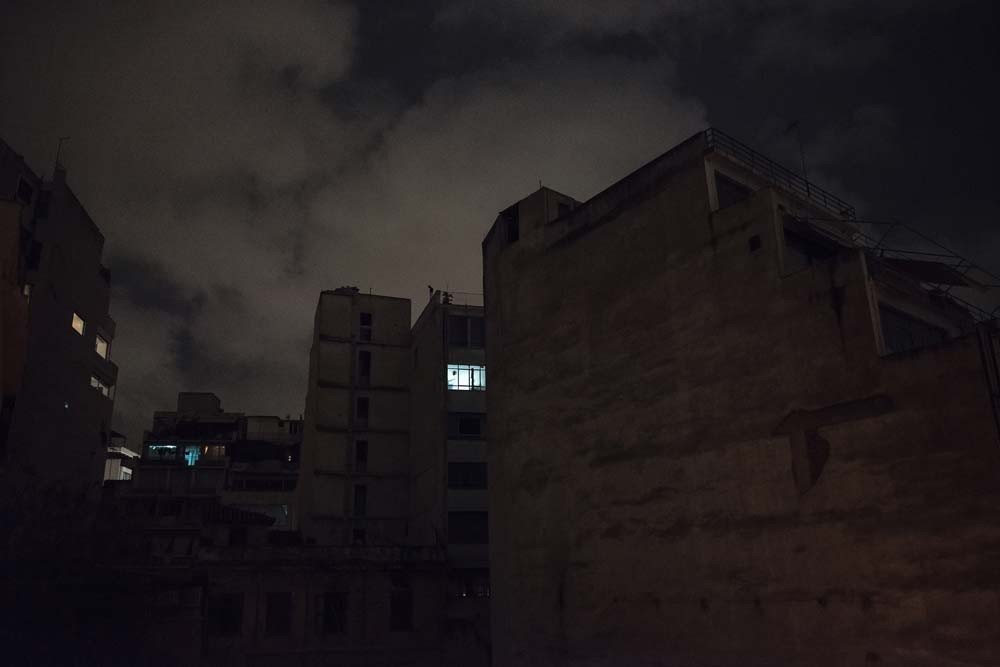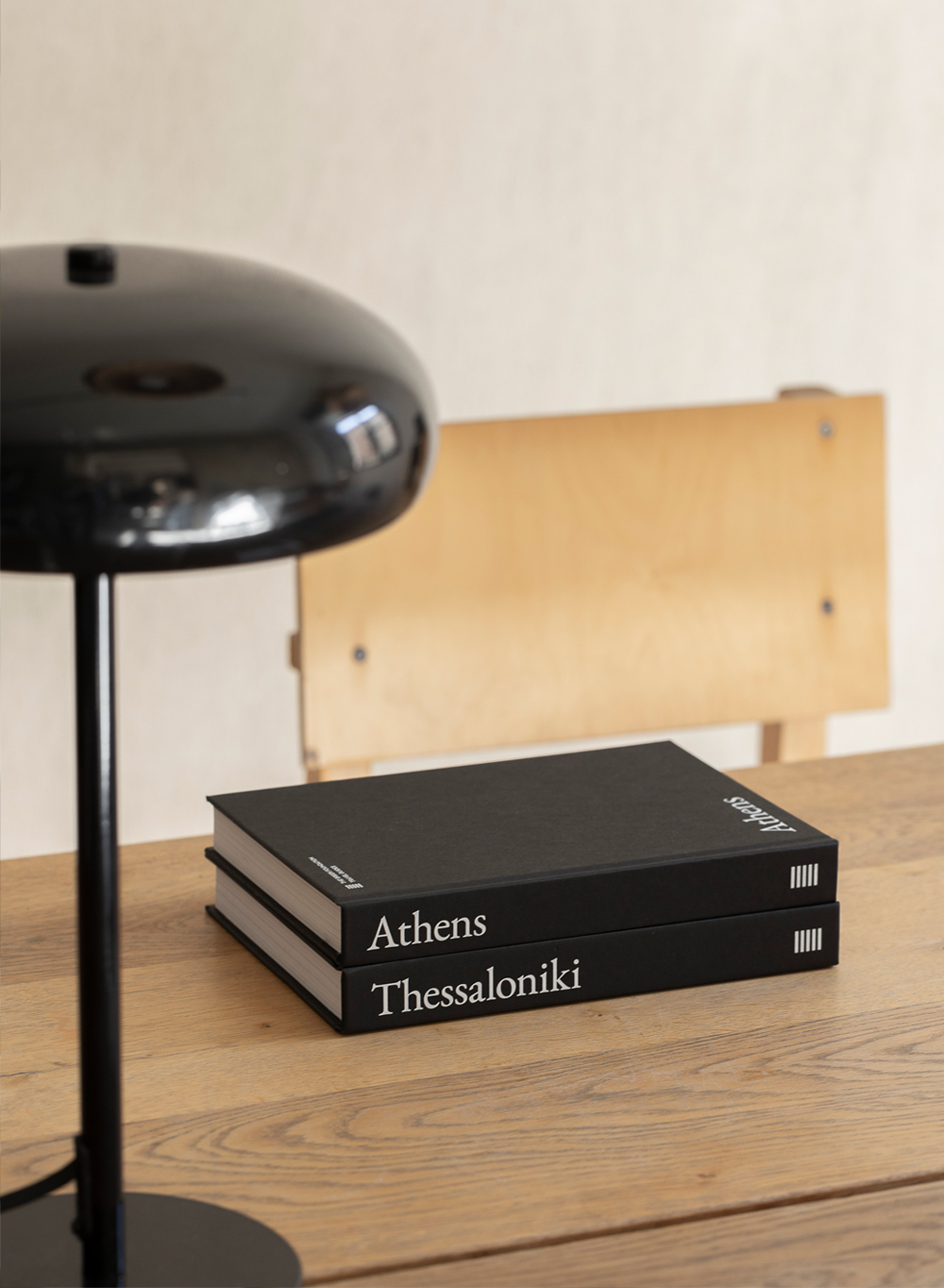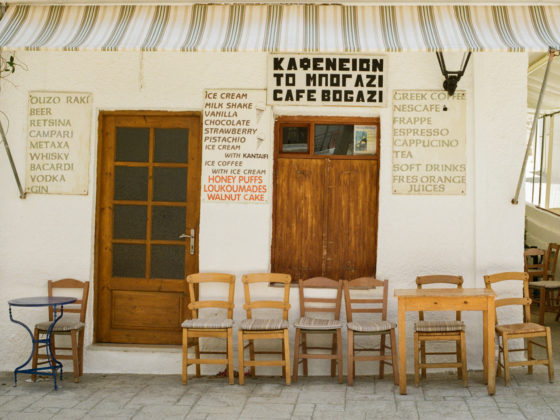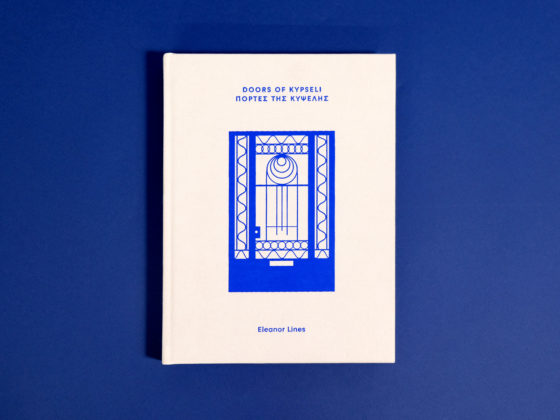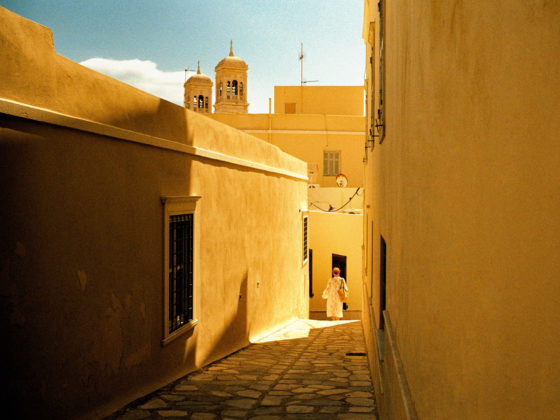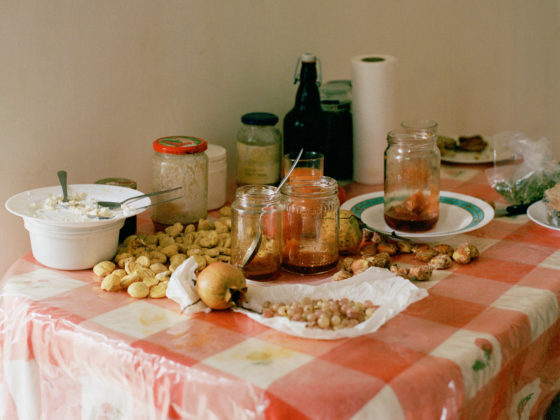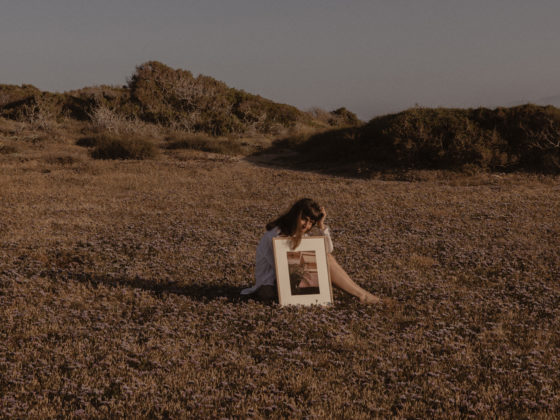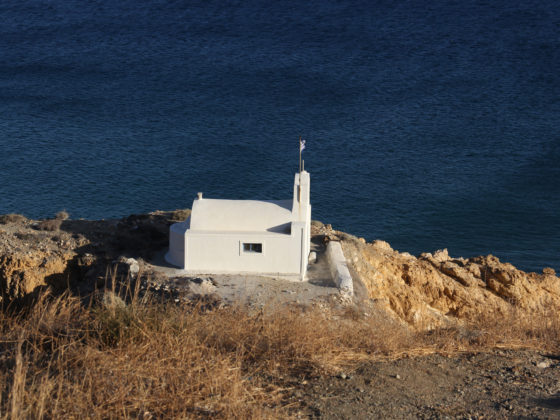Greece’s geographical location has turned it into the external frontier of the EU on the East, trying to manage the large flow of migrants and refugees, most of whom wish to go further west to other EU countries. The country is the first gateway to Europe’s mainland for those who have survived, crossing the east borders of Greece (from northeast Evros River to southeast Aegean Sea) including Greece’s capital, Athens. As a major economic center, the region of Attica and the connected small cities surrounding it (Megara, Corinth, Lavrio and other) have become a temporary shelter for migrants and refugees on their way to western Greece which is directly connected to western Europe (Italy).
Athens, Greece. The city’s transformation throughout the years, has affected, in a multifaceted way, the perspective through which citizens interpret the city and form their pace of living in it.
The city functions as a cell. Inside it, people for decades find a shelter for their dreams, a place where they can live as self-beings. Where they can rebuilt their lives. There is a constant need to go to the big city, a hidden belief about the opportunities offered there. A way to escape but also to be secured. A place where the public is crystallized and the private is better hidden.
Migrants and asylum seekers, in most cases, don’t have legal papers and passports in order to continue their journey. They get stuck within the borders of the city and the greater region.
The city becomes their new home, their temporary shelter and their new life. They live here between the lines of a public space, inside in a parallel word, trying to survive, waiting.
A part of their journey:
“My name is Mohammed , I’m from Syria. I used to be a university student”
“My name is Omar, I am from Syria. I came to Greece before two years and three months. I came from Istanbul.”
“I went of course to Turkey at first, from Turkey I came to Greece. I spent too much money for the smugglers to bring me here. Now I’m in Greece looking for a legal way at least to get me out of here.”
“We arrived near the borders of Greece, from there we walked for three hours to reach the border, after three hours of walking we reached the river. The one that is near Alexandroupolis [Evros].”
“There we were 20 people, we had two boats and in each boat got 10 people, in our boat we were all from Syria. It was very difficult, because no one knew how to paddle. When we got there [in the Greek side], police was shouting to us, to go back to Turkey. The guys from the other boat, from Morocco, Afghanistan and Pakistan, ran towards Greece.”
“We got out from the boat. The police shouted to us “back!”. To turn back, to cross the border and go to Turkey. Women began to cry because a police officer pulled his gun out. It was far from us around 70 meters and was screaming “Back! Back! Back!” to go back. I did not want to go because I don’t know how to swim, neither the two women did and of course the baby.”
“Went back on the boat.”
“The boat was drifting in the middle of the river. It kept drifting. We were afraid and we shouted for help “Help me! Help me! Help me!” But the police had hidden and we didn’t know what to do.”
“I told myself that my life ends here”
“Suddenly the wave pushed us back to the Greek borders. We got out and sat there for half an hour. Then we went back to the police which was 100 meters from us.”
“Now I’m in Greece, looking for a legal way at least to get me out of here. Because here [in Greece, there are] no jobs, no way to live. I’m spending my family’s fortune for this, so at least Ι need a job for me to live. There are no jobs here, no one to blame. Greek people have their own situation, their own problems so they can’t afford to give us jobs, to give as shelters and whatever. So we have to go out, we need to go out! When you need to go out you don’t have, you have no [other] way but the land way, the airport and all of that are illegal of course.”
“Year and a half ago, I was feeling so mentally tired. I once saw a dance teacher dancing. I didn’t know how to dance at all. I started practicing dance. I felt better and I went back to learn how to dance. I was feeling well and I was dancing, not thinking about all these bad things. Gradually I met people from the theater, I did dance classes and finally last year I had some dance performances with four different groups.”
“The police has caught me 23 times while I’m in Greece. Three times I went to prison. Once in Thessaloniki I got 45 days in jail because my papers [residence permit]] had expired for one month.”
“Here [now] I want to build my life in order to be able go somewhere else [in the future].”
In December 2014, Mohammed crossed the borders with Skopje. This was his fifth attempt.
In January 2015, Omar still lives in a small basement in central Athens. He has tried to flee Greece more than four times so far.
